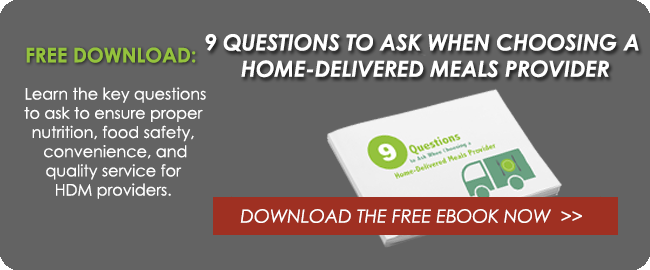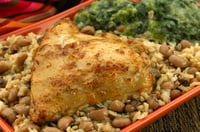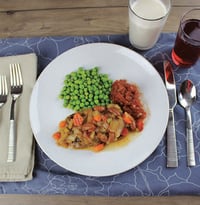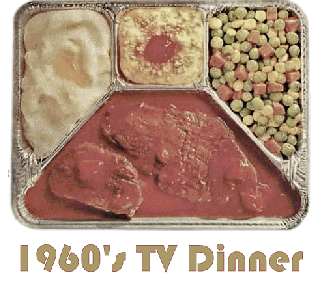 Many senior nutrition programs are moving away from the traditional model of delivering hot meals daily to
Many senior nutrition programs are moving away from the traditional model of delivering hot meals daily to
delivering frozen meals weekly. If the idea of frozen meals conjurs up images of TV dinners from the 1960's, we are talking about something entirely different. Today's meals meet strict nutritional guidelines and are actually targeted for older adults. Here are the facts:
1. Frozen food has the same, if not better, nutritional value as fresh foods.
Frozen produce is not harvested until fully ripened. Fresh produce is harvested before reaching peak ripeness, so it can ripen during transportation and storage. This means nutrients do not develop to full potential. However, frozen produce is allowed to ripen before being picked. The mature fruits and vegetables contain high levels of vitamins, minerals, and antioxidants. Frozen foods are flash-frozen immediately after being harvested. This process assures there is minimal nutrient loss when processing the foods. Hot and chilled meals are subjected to light and heat during transportation and storage, causing further nutrient loss. Frozen meals can be transported and stored without compromising nutrient content.
2. Maintaining the cold chain with frozen home-delivered meals is the most reliable method of assuring food safety.
Although there are multiple causes of foodborne illness, improper temperature control is a common failure point in many segments of the food service production and distribution chain. The “cold chain” process has emerged as the most reliable method of assuring food safety. With this method, food is maintained at temperatures that prevent the growth of harmful bacteria and pathogens that are responsible for the majority of foodborne-related illnesses. Maintaining the cold chain process from the time of production until consumed is the best way to protect seniors from foodborne illness. For more information on foodborne-illnesses in seniors, click here.
Using frozen meals also allows delivery routes, particularly in rural areas, to be extended without compromising food safety. Hot meals have a much shorter delivery window. Drivers have to ensure meals are not exposed to improper temperatures and allowed to spend time outside of the food safety "danger zone."
3. Food quality is more appealing with frozen home-delivered meals.
Food held at hot temperatures also keeps bacteria from growing. However, hot food begins to deteriorate over time, affecting appearance, aroma, flavor, and texture. Food becomes mushy, overcooked, discolored, bitter, and dried out. Also, nutrient loss is greater with hot meals. Frozen meals are flash-frozen immediately after being cooked, locking in their great quality, taste, and nutrition. Freezing also allows seasonal foods to be available year round.
4. Frozen home-delivered meals offer more flexibility and autonomy for the seniors.
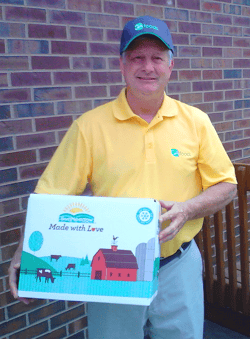 Frozen meals are delivered to the homes 2 to 4 times per month, freeing up the senior's schedule. This allows them to select the meal they want to eat - when they want to eat it. Daily, hot home-delivered meals require the senior to be home every day at a specific time. There is no flexibility for scheduling doctor and therapy appointments. These meals are also selected for the senior, taking away their autonomy.
Frozen meals are delivered to the homes 2 to 4 times per month, freeing up the senior's schedule. This allows them to select the meal they want to eat - when they want to eat it. Daily, hot home-delivered meals require the senior to be home every day at a specific time. There is no flexibility for scheduling doctor and therapy appointments. These meals are also selected for the senior, taking away their autonomy.
Weekly deliveries of frozen meals allow nutrition programs to better utilize their resources and serve more seniors. In place of daily meal deliveries, many programs have their volunteers make social visits or phone calls to their recipients. This makes the seniors and their families feel more secure, knowing someone is regularly checking on them.
If you'd like more information on selecting a home-delivered meal provider, click here.

